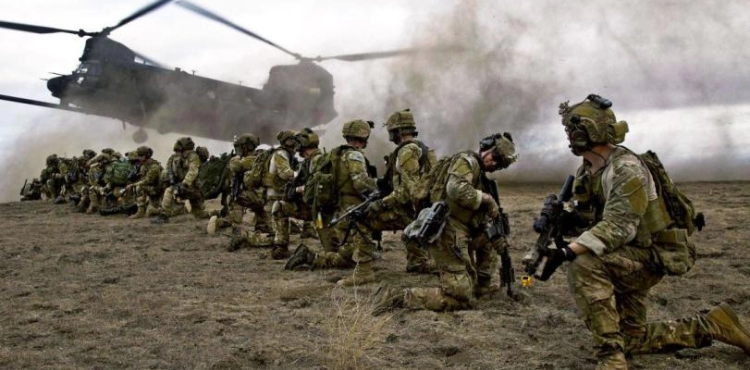The Taliban, the enemies of the former Soviet Union, have a good relationship with Russia, which is trying to push them to demand a US withdrawal from Afghanistan despite its refusal to take over the role of mediator in the conflict on the outskirts of its sphere of influence.
Despite the official ban on Taliban activity in Russia, the movement´s leaders received a warm welcome at a luxury hotel in the Russian capital where Tuesday and Wednesday are holding unprecedented talks among senior Afghan opposition leaders.
Russian Foreign Minister Sergei Lavrov stressed that the talks were being held in a special gesture by the "Afghan community in Russia", specifically from "a group worried about their homeland".
He said Russia was only responsible for the "logistical and visa" side of the meeting, which is being organized in the absence of a significant Afghan president or any representative of the current government.
However, an expert at the Center for Contemporary Afghan Studies in Moscow Andrei Sirenko stressed that meetings Tuesday and Wednesday "fully translate a draft of the Russian presidency."
"The withdrawal of the Americans breaks the whole system of regional stability, and Russia hopes to take on the role of a relatively honest mediator, aware that there are no longer any actors there," he said, adding that Russia did not intend to "spend money" in Afghanistan or "turn America back".
For years, Moscow has been calling for a "direct" and "constructive" dialogue between the Afghan authorities and the Taliban.
In November 2018, the Russian authorities in Moscow hosted a meeting of a Taliban delegation with the participation of an Afghan government body for the first time. But those talks ended without much progress.
In 2017, the first international conference on Afghanistan was organized without the participation of the Taliban, and in the presence of representatives of the countries of the region in the absence of the United States.
"The biggest involvement of Moscow in the Afghan conflict has surprised many, especially because of the bloody history of Russia in Afghanistan during the occupation between 1979 and 1989," said Soufan.
For Russia, it is mainly about protecting the security of the former Soviet republics of Central Asia, which it considers to be within its sphere of influence, especially the porous 1,300-kilometer border between Afghanistan and Tajikistan.
Russia is concerned about the infiltration of the Islamic state in Afghanistan and wants the Taliban and the Afghan government to unite their efforts to fight it. Russian authorities said they feared infiltration by jihadists into neighboring countries, including Russia.
In 2015, a senior Russian official confirmed that the Taliban targets "meet" Moscow´s goals of fighting the jihadi organization, while former Afghan President Hamid Karzai called on Russia to engage more in his country.
Lavrov said two years later that Russia was in contact with the Taliban only "to ensure the security of Russian citizens and institutions" in Afghanistan and "to call for dialogue with the Afghan government."
"The Taliban, which only respects force, are now talking the same language with Russia," said Sirenko, who said a settlement in Afghanistan would allow Moscow to focus on the US failure in the country amid tensions with Western capitals.
"Ironically, Russia is again facing the United States in Afghanistan today," said independent analyst Arkady Dubnov.
Drawing on its disastrous experience in Afghanistan at the time of the former Soviet Union, Russia is trying today not to compete with Washington or to seek to replace it in this thorny issue. And is seeking to find its own channel before the July 20, 2019 election, which bet on the victory of Mohammed Hanif Atmar, according to Syrenko.
However, American expert Michael Kojelman said the Russian strategy could be risky. "By urging the Afghan opposition to dialogue with the Taliban, Moscow could break up a fragile peace process and could cause a new crisis within the deeply divided Afghan government" .












